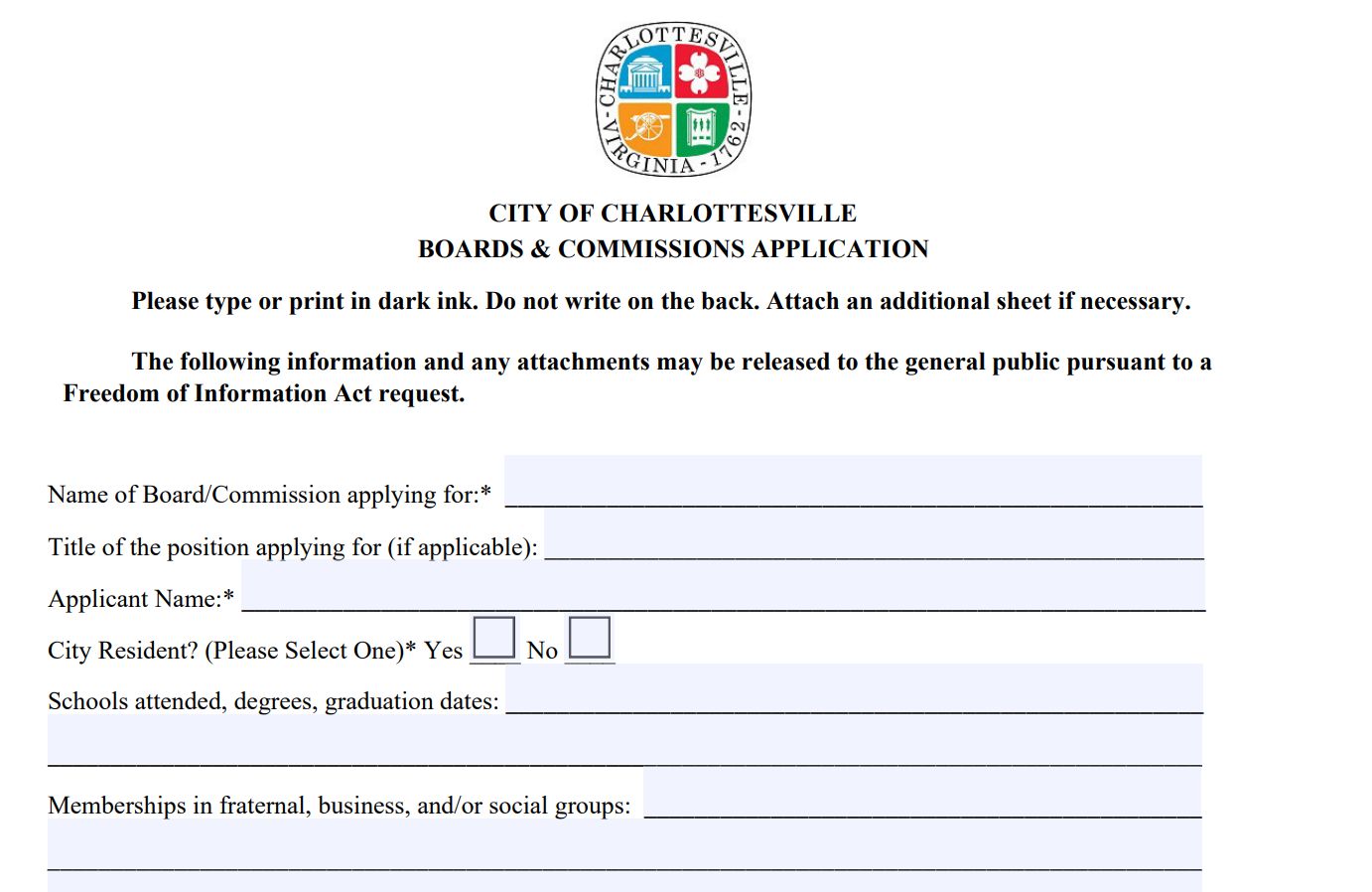Charlottesville City Council has introduced Marc Woolley as the next interim city manager. Woolley recently resigned as Business Administrator in Harrisburg, the capital of Pennsylvania. The city has U.S. Census 2020 population of 50,099. Deputy City Manager Ashley Marshall and Sam Sanders will remain in place.
“Together with the assistance of staff, Sam, Ashley, and Council, I will be focusing on some key issues currently before Charlottesville,” Woolley said. “Mainly the budget and the completion of the Comprehensive Plan.”

Woolley will begin work on December 1. The process to find a permanent city manager will resume once again in April.
Woolley is a native of Wilmington, Delaware who went to law school at Boston College. He’s worked as general counsel for the Philadelphia Housing Authority, two positions at the Delaware River Port Authority, three positions at the Hershey Trust Company, and the position in Harrisburg. (read his resume)
“I’ve been with the City of Harrisburg for the past four years as the Business Administrator,” Woolley said.
Harrisburg has a form of municipal government where the executive and legislative branches are separate, so a “strong mayor” oversees department heads. The business administrator position is equivalent to a city manager.
“All administration functions flowed through me except for the city solicitor,” Woolley said.
According to an article on Pennsylvania Live, Woolley’s resignation had been expected to begin on November 12, but Mayor Eric Papenfuse made that effective November 1 after learning of the Woolley’s decision to leave Harrisburg. Papenfuse was defeated the next day in his bid for a third term, though he ran as a write-in.
Anticipating questions from the press about Woolley’s careee, Councilor Lloyd Snook led a friendly cross-examination of his career history after resigning from the Philadelphia Housing Authority.
Snook:
“Looking at the next ten years or so of your career it seems like you were often put in a position of having to kind of clean up a mess. Is that an accurate assessment?”
Woolley:
“I think to first assess what the issues were and then accordingly if there were things that needed to be done to implement those policies in order to rectify anything.”
Harrisburg has been considered by the Commonwealth of Pennsylvania as a distressed municipality since 2010. That requires creation of a Financial Recovery Plan which is called the Harrisburg Strong Plan. The latest financial report for the capital city is from 2019.
Snook:
“When you got to Harrisburg there were shall we say some financial difficulties that you were having to unravel.”
Woolley:
“Some financial difficulties. We are in Act 47 which is for distressed municipalities in the Commonwealth of Pennsylvania. Years before I arrived in Harrisburg there were a number of bond deals that were done and saddled the residents with a lot of debt and turns out they just couldn’t pay it. The city couldn’t pay it back. The state sent in a receiver to develop what they call the Strong Plan. They sold off a lot of assets, almost $400 million worth of assets, applied those to the debt and set up payments for other general obligation debts. When I arrived in Harrisburg, we were rounding the corner. This year and actually starting last year, was able to entertain actually getting back our credit rating. We didn’t have a credit rating. Looking to refinance debt and put out for capital projects. It’s a 180 degree turn from where they were and I think Harrisburg is going to better for it and I think they’re going to get a credit rating. Not as good as Charlottesville, but they’re going to try.”
The city has held a AAA bond rating from Standards and Poor’s since 1964 and a AAA bond rating from Moody’s since 1973. For the past several years, the city has been steadily increasing debt-financing for capital projects, including several million a year for affordable housing projects and $75 million for the renovation of Buford Middle School. The next budget may include a property tax increase to help pay the debt service. Woolley will oversee creation of that next document but acknowledged Council will be reopening the pubic process for a permanent manager next spring. (Routine advice wanted for city bonds, October 26, 2021)
“This is not necessarily the transition,” Woolley said. “The transition will occur when the new city manager is appointed through the process that you’ve described in April but right now there are certain acute issues that need to be taken care of, mainly the budget and the Comprehensive Plan.”
Woolley said his role is to lay the foundation for that person.
While Charlottesville’s government is not considered distressed, the separate Charlottesville Redevelopment and Housing Authority is considered a troubled agency by the U.S. Department of Housing and Urban Development.
Watch the whole press briefing which included comments and questions from members of the community. The entire event was just over an hour long and is on the city’s streaming archive. (watch)
Former City Manager Chip Boyles recently took a job as the executive director of the George Washington Regional Commission, the planning district around Fredericksburg.
(This article originally appeared in the November 8 edition of Charlottesville Community Engagement. Please consider a contribution through Patreon to help sustain this work.)











